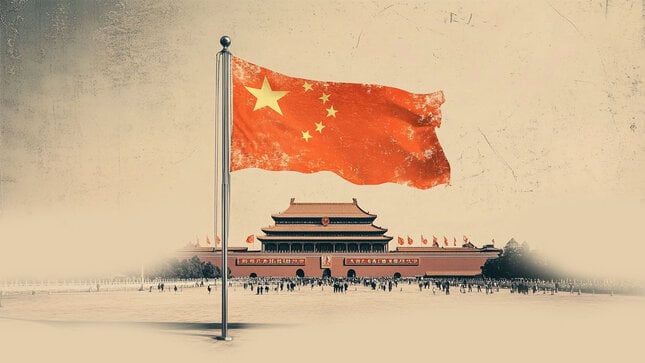South Korea's Trade Minister Ahn Duk-geun said on Friday that “there is a possibility that the trade deal might come after the 8 July deadline.”
Additional comments
- Requested again for a waiver from US tariff measures at the APEC conference.
- South Korea's delegation to visit the US next week for further tariff negotiations.
- Emphasised the importance of the auto and steel sectors during talks with US Trade Representative Jamieson Greer.
- Has set up formal negotiation framework with the US.
- Next ministerial-level meeting expected to be held in the middle of June.
Market reaction
Following these comments, the US Dollar Index (DXY) remains in the red near 100.70 while the USD/KRW holds the rebound near 1396.
Tariffs FAQs
Tariffs are customs duties levied on certain merchandise imports or a category of products. Tariffs are designed to help local producers and manufacturers be more competitive in the market by providing a price advantage over similar goods that can be imported. Tariffs are widely used as tools of protectionism, along with trade barriers and import quotas.
Although tariffs and taxes both generate government revenue to fund public goods and services, they have several distinctions. Tariffs are prepaid at the port of entry, while taxes are paid at the time of purchase. Taxes are imposed on individual taxpayers and businesses, while tariffs are paid by importers.
There are two schools of thought among economists regarding the usage of tariffs. While some argue that tariffs are necessary to protect domestic industries and address trade imbalances, others see them as a harmful tool that could potentially drive prices higher over the long term and lead to a damaging trade war by encouraging tit-for-tat tariffs.
During the run-up to the presidential election in November 2024, Donald Trump made it clear that he intends to use tariffs to support the US economy and American producers. In 2024, Mexico, China and Canada accounted for 42% of total US imports. In this period, Mexico stood out as the top exporter with $466.6 billion, according to the US Census Bureau. Hence, Trump wants to focus on these three nations when imposing tariffs. He also plans to use the revenue generated through tariffs to lower personal income taxes.
Information on these pages contains forward-looking statements that involve risks and uncertainties. Markets and instruments profiled on this page are for informational purposes only and should not in any way come across as a recommendation to buy or sell in these assets. You should do your own thorough research before making any investment decisions. FXStreet does not in any way guarantee that this information is free from mistakes, errors, or material misstatements. It also does not guarantee that this information is of a timely nature. Investing in Open Markets involves a great deal of risk, including the loss of all or a portion of your investment, as well as emotional distress. All risks, losses and costs associated with investing, including total loss of principal, are your responsibility. The views and opinions expressed in this article are those of the authors and do not necessarily reflect the official policy or position of FXStreet nor its advertisers. The author will not be held responsible for information that is found at the end of links posted on this page.
If not otherwise explicitly mentioned in the body of the article, at the time of writing, the author has no position in any stock mentioned in this article and no business relationship with any company mentioned. The author has not received compensation for writing this article, other than from FXStreet.
FXStreet and the author do not provide personalized recommendations. The author makes no representations as to the accuracy, completeness, or suitability of this information. FXStreet and the author will not be liable for any errors, omissions or any losses, injuries or damages arising from this information and its display or use. Errors and omissions excepted.
The author and FXStreet are not registered investment advisors and nothing in this article is intended to be investment advice.
Recommended content
Editors’ Picks

AUD/USD bounces from fresh weekly low, trades below 0.6500
Demand for the US Dollar soared on Tuesday amid escalating tensions between Israel, Iran and now the United States. The AUD/USD pair fell alongside Wall Street, trading below 0.6500 in the early Asian session.

EUR/USD crashes through 1.1500 as Trump turns up heat on Iran
The EUR/USD pair is collapsing by over 0.60% as the US Dollar remains bid due to its safe-haven status amid the escalation of the Middle East conflict between Israel and Iran, which appears to be broadening as the White House considers its involvement.

Gold holds firm below $3,400 as strong Dollar defies global turmoil
Gold prices retreated below the $3,400 level on Tuesday despite deteriorating risk appetite as overall US Dollar strength drove the yellow metal lower. Nevertheless, the escalation of the Israel–Iran conflict would likely underpin the precious metal due to its safe-haven appeal.

Ondo Finance rolls out Global Markets Alliance to advance tokenized securities
ONDO saw double-digit losses on Tuesday despite Ondo Finance's announcement that it has launched the Global Markets Alliance, comprising crypto wallet providers, exchanges, and institutional custodians to improve the adoption of tokenized real-world assets.

Chinese data suggests economy on track to hit 2025 growth target
China's May data was mixed with strong retail sales, but soft readings on fixed-asset investment and property price. Overall, though, data suggests that China remains on track to achieve its growth target in the first half of 2025.
